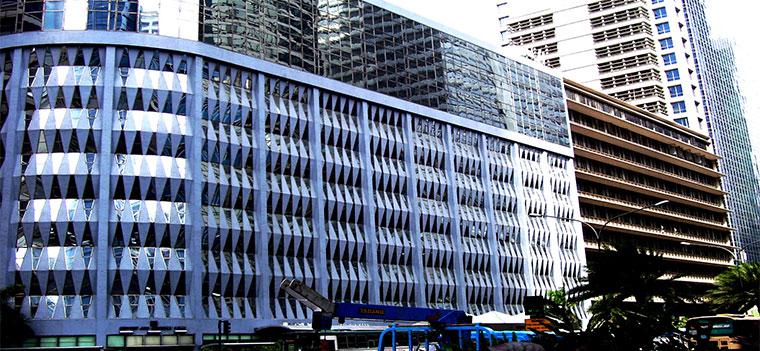News
- Buildings are one of the main consumers of energy, using about 35% of the world’s energy and accounting for about 70% of greenhouse gases in urban areas. Energy- and resource-efficient building solutions are crucial to avoid locking in countries into inefficient, GHG-intensive, and expensive development.
- ESMAP, through its City Energy Efficiency Initiative, is supporting IFC’s EDGE program, which works with an array of stakeholders to promote green buildings.
- The ESMAP-EDGE collaboration has focused on disseminating key knowledge on EDGE’s certification program through a global knowledge platform and on rolling-out EDGE in South Africa.
The buildings sector is one of the main consumers of energy and resources, using about 35% of the world’s energy (and 60% of electricity), 25% of water, and 40% of materials extracted and emitting approximately one third of global greenhouse gas (GHG) emissions. In urban areas, the sector accounts for about 70% of greenhouse gases.Making the obvious connection between energy efficient cities and green buildings, the World Bank’s Energy Sector Management Assistance Program (ESMAP), has collaborated with the International Finance Corporation (IFC)’s EDGE (Excellence in Design for Greater Efficiencies) program.
Launched in 2013, EDGE aims to help transform the building sector by creating a virtuous circle of supply and demand, strengthening the regulatory environment and attracting investment. It works with governments, developers, local thought leaders, and lenders to align incentives and grow their capacity to plan, design, finance and construct green buildings. EDGE uses a comprehensive approach to inform actors in the key sectors that it targets—housing, hotels, hospitals, retail, and offices—of the value of green buildings. The program also advises governments on green building codes and encourages innovative financial instruments such as green mortgages. It actively leverages IFC investments to provide financing to developers and owners of resource-efficient buildings and aims to scale up investment flows for green growth through local banks.
The heart of the program is a green building certification system for new residential and commercial buildings that achieve at least 20% reductions in energy, water, and the energy used in making the building materials compared to conventional construction. EDGE certification is easy, quick, and affordable compared to other, more complex and expensive certifications. The certification is supported by free software to help clients identify cost-effective measures for designing and constructing their resource-efficient buildings. The ease of use of the application allows builders to integrate resource-efficiency into building design within minutes.
With support from ESMAP and other international donors, IFC has put into action a comprehensive network of global and local certification providers to help bring the EDGE program to scale. To date, 880,000 m2 of floor space has been certified across 13 countries by some of the biggest and internationally recognized certification bodiesin the world. This achievement has also made EDGE-certified buildings eligible under the Climate Bond Initiative, a non-profit organization working to mobilize bond markets for climate change solutions. In addition, EDGE certification has been recognized and implemented by development banks such as Germany’s KfW, the UK’s CDC, France’s Proparco, and the Netherlands’ FMO as well as local financial institutions in Costa Rica, India, South Africa, and Turkey.
To strengthen the capacity of stakeholders to undertake green building projects, the ESMAP-EDGE collaboration has focused on developing and refining the EDGE certification program’s global knowledge platform that shares key information, including the software, supporting databases, the certification governance protocol, and a growing number of case studies.
Information on the roll out of EDGE in South Africa were also disseminated through the platform. ESMAP support for EDGE in South Africa helped operationalize the cooperation agreement with the Green Building Council of South Africa to launch EDGE in the market. ESMAP funding also enabled EDGE software and training materials to be adapted to meet local needs and helped bring green building and financial structuring expertise to support the piloting of transactions with local partners, developers, and lenders. In South Africa, almost 80,000 m2 of floor space has already been registered or certified.
This is only the beginning. The ESMAP-EDGE collaboration is clearly helping to transform the enabling environment in emerging markets. Going forward, ESMAP, under its new Efficient and Sustainable Buildings focus, will continue its collaboration with EDGE and further explore ways to integrate energy- and resource-efficient building considerations into World Bank Group projects and to scale up efforts in even more cities globally.

